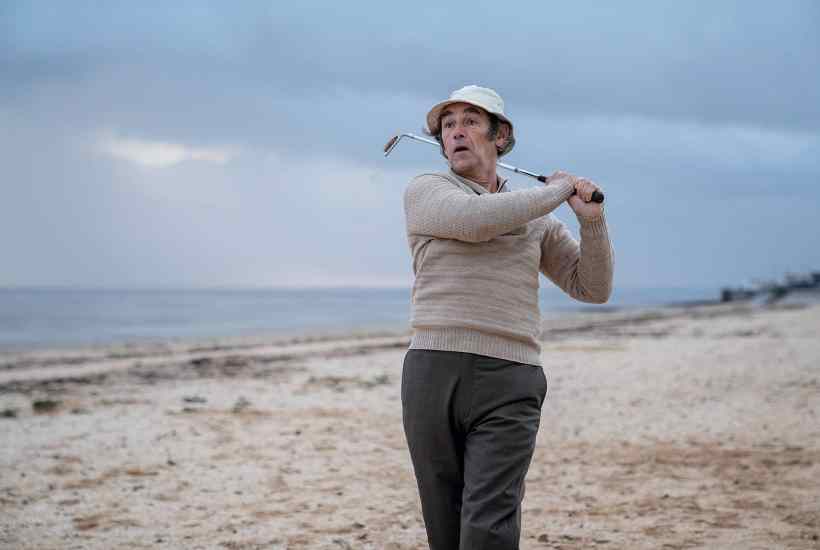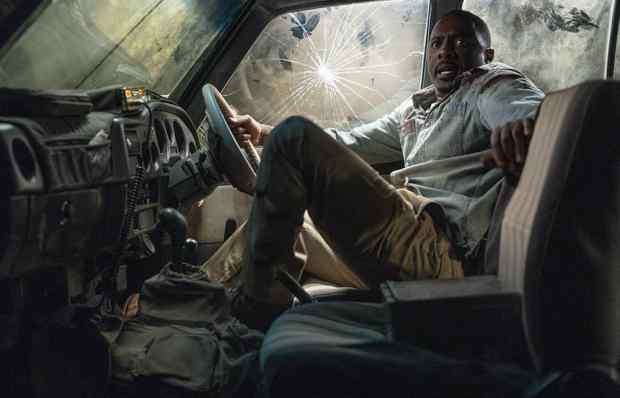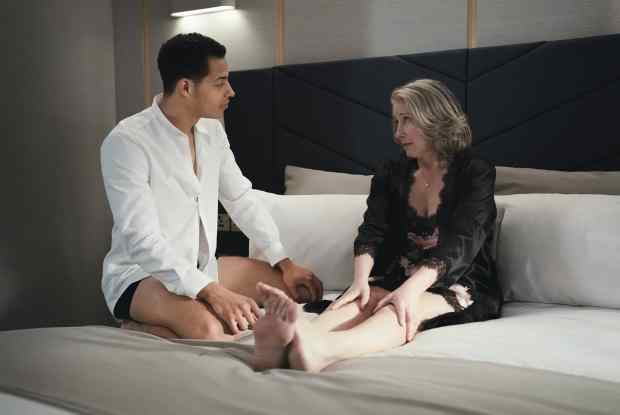Phantom of the Open is a comedy-drama telling a true story that would have to be true as no one would believe it. The subject is Maurice Flitcroft, a crane operator who took up golf at 46 after seeing it on the telly and entered the British Open in 1976, achieving the highest score ever. (‘Does that mean he’s won?’, asked his wife.) Dubbed ‘the world’s worst golfer’, he then hoaxed his way into further Opens, much to the incandescent rage of the snobbish authorities, and you’ll be rooting for him, of course. This is a British underdog film like The Duke – but with some Eddie the Eagle mixed in – and it’s fun and enjoyable and good-natured even if it does play it safe and waltz off into Hallmark schmaltz at the end. Best of all, though, it stars Mark Rylance and Sally Hawkins which means it’s immeasurably better than it might have been. (I can’t put a precise figure on this but would guess it’s around 87 per cent better.)
The film is directed by Craig Roberts and written by Simon Farnaby who co-wrote a book about Flitcroft, co-wrote Paddington 2, and who, as an actor, you will recognise from the Horrible Histories troupe. It opens with Flitcroft (Rylance, beset by a set of dentures) about to give a TV interview and asking for his usual refreshment – ‘tea, six sugars’ – before it flashes back to his childhood and his evacuation to a grand Scottish estate. Here, he read books and learned the violin and was told he could be anything. But he’s a working-class boy and after the war it’s back to Barrow-in-Furness and his true destiny. That is, working in the shipyards because that’s what his father did and his father’s father and so on. But he had learned to dream, we are given to understand. I was always wondering: what motivated this fella? But there is no explanation beyond that.
He acquires a loving family. There’s his supportive wife, Jean (Sally Hawkins), her son, Michael (Jake Davies), and their identical twin sons, James (Jonah Lees) and Gene (Christian Lees), who will go on to become world disco champions (really). Flitcroft is inspired by catching the Open on TV and is determined to enter, even if he’s never played before as the posh snobs at local golf club won’t let him join. He orders the cheapest mail-order clubs, practises on the beach (montage time) and, spotting a loophole in the Open’s admission procedure, enters the qualifying round as a ‘professional’. Rhys Ifans plays the apoplectic club secretary who swears Flitcroft will never compete again, but Flitcroft keeps coming back under different names. Sometimes while wearing a fake moustache.
There are some delicious moments as when, for example, Jean lists Maurice’s ‘handicap’ as ‘false teeth and lumbago’ or a TV regional news programme asks Flitcroft to come putt in their studio and he misses every shot. But you always sense this is skipping along the surface of something deeper and more interesting. Did Flitcroft imagine he was a good golfer? Was he simply determined to get one over on the establishment? Why does he come back time after time for yet more mockery? Could we say he was crazy? There is something here that isn’t in the film, is what I’m saying.
Both Rylance and Hawkins give lovely, warm, affectionate performances even if the characters are somewhat lightweight. Flitcroft is mostly innocent and guileless while Jean is understanding, encouraging and sweet. The ending is schmaltzy, with one of those messages about the importance of family, but overall this does what it says on the tin. It’s cheerful, it’s crowd-pleasing and you win at golf if you achieve the lowest, not the highest score, so I learned something too.
Got something to add? Join the discussion and comment below.
Get 10 issues for just $10
Subscribe to The Spectator Australia today for the next 10 magazine issues, plus full online access, for just $10.
You might disagree with half of it, but you’ll enjoy reading all of it. Try your first month for free, then just $2 a week for the remainder of your first year.














Comments
Don't miss out
Join the conversation with other Spectator Australia readers. Subscribe to leave a comment.
SUBSCRIBEAlready a subscriber? Log in